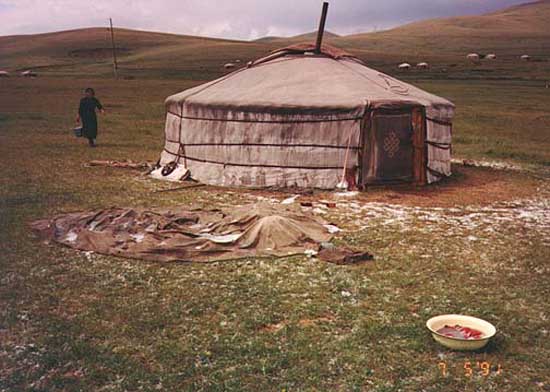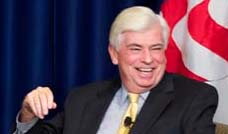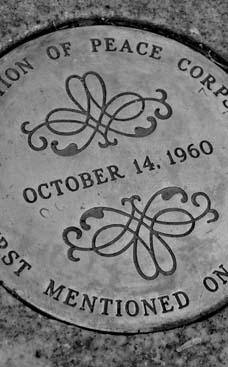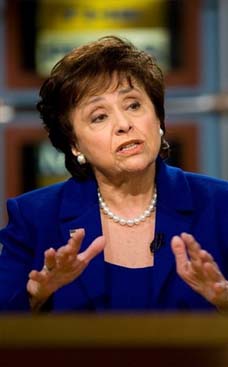
Therefore, many US Peace Corps volunteers who stayed in the countryside have fantastic Mongolian. The only problem is that they speak like Mongolian herders. Mongolian language textbooks from the Peace Corps were prepared by famous Mongolian scholars Therefore, it has a classic Mongolian language flavor. For example, the Mongolian expression "Go to the restroom" is "Go see a horse". If an ordinary city boy or city girl will use this expression people will laugh.
G. Chingis writes: Usually, former Peace Corps volunteers will be able to speak rudimentary Mongolian
To study Mongolian or not?
Written by G.Chingis
Tuesday, August 24, 2010.
For any foreigner or for any worker in a foreign organization, to study Mongolian or not is usually a big dilemma faced. As Shakespeare's Hamlet might have put it, "to study or not to study, that is the question." Probably the correct answer is not to bother.
Mongolia has had over 70 years of history with the Soviet Union and modern Russia. According to Soviet/Russian sources, around one million Russians and other former Soviet Union citizens went through Mongolia including military and civil personnel. Nevertheless, almost none of them studied Mongolian. Undoubtedly, Russia has had many famous scholars in Mongolian studies. But ordinary Russian people do not usually know foreign languages. So, Russian construction workers and engineers, who built half of Ulaanbaatar, did not speak Mongolian.
During socialist times, many Mongolians studied in the Soviet Union. There were studies at all levels: university, vocational training, civil and military. Therefore, most Mongolians over 40 years of age speak Russian. Russians did not have problems surviving in Mongolia without interpreters.
So at that time, there was really no need to study Mongolian. Only Mongolian studies conferences usually revealed many scholars from various countries who surprised Mongolians with classic Mongolian.
The situation changed from in the 1990s, when Mongolia opened its doors to the entire world. The Russians left and westerners came to Mongolia. The U.S. Peace Corps was probably the first among foreign organizations to introduce a Mongolian language program. At that time, Americans impressed Mongolians with their language skills. Many former Peace Corps volunteers later joined the U.S. State Department, Asia Foundation and foreign companies, such as Ivanhoe Mines etc.
Nevertheless, it is quite difficult to imagine that they will know Mongolian as a Mongolian does. It means these foreigners should be able to understand business Mongolian or finance in Mongolian. Usually, former Peace Corps volunteers will be able to speak rudimentary Mongolian. Also, if you work for an embassy, you do not need to know Mongolian in the office. Also, they mostly communicate with the political and business elite in English.
Of course, some of these Mongolian speakers are flattered by Mongolians. For example, a well known Singaporean guy, who was a judge on a famous singing competition on Mongolian TV channel has funny Mongolian. Of course, knowledge of Mongolian is crucial in some areas when dealing with Mongolians without knowledge of any foreign languages. Therefore, many US Peace Corps volunteers who stayed in the countryside have fantastic Mongolian.
The only problem is that they speak like Mongolian herders. Mongolian language textbooks from the Peace Corps were prepared by famous Mongolian scholars. Therefore, it has a classic Mongolian language flavor. For example, the Mongolian expression "Go to the restroom" is "Go see a horse". If an ordinary city boy or city girl will use this expression people will laugh.
Many former Mongolian studies students and professionals found jobs in embassies and companies in Mongolia. For example, one Korean diplomat, who does simultaneous translations from Mongolian to Korean was not able to understand the Mongolian neologism "генсек ". This word was adopted from the Russian word "general secretary". Oddly, even younger members of the Mongolian staff did know the meaning of this word.
Of course, in bigger countries such as in the United States or Russia, local people will expect foreigners to have some knowledge of the local language. In smaller countries, such as Mongolia, local people will try to speak some of the more widespread foreign languages, such as English, Russian or other languages.
Typically, Chinese and Russian embassies widely use their own minorities, such as Russian Buryats or Inner Mongolians. The Russian embassy has such a diplomat, who usually does simultaneous translations for Russian high level officials. According to his last name, he is an ethnic Mongolian (Buryat or Kalmik). Other embassies use Mongolian personnel, who are usually young girls with linguistic backgrounds. Therefore, they will usually fail with specific terminology. Once, a young lady from the U.S. embassy translated "trade union" from English to Mongolian as union of traders.
Ideally, every foreigner should have a rudimentary level of Mongolian. We, Mongolians, like to brag about our fantastic language skills. Unfortunately, most Mongolians do not speak English, Japanese, Korean or Chinese. There are some exemptions for Russian or German; the older generation can speak some rudimentary Russian or German.
In the end, you need Mongolian for shopping and everyday life. For your professional life you do not need Mongolian unless you want to save your company money by not hiring Mongolian translators and interpreters.













